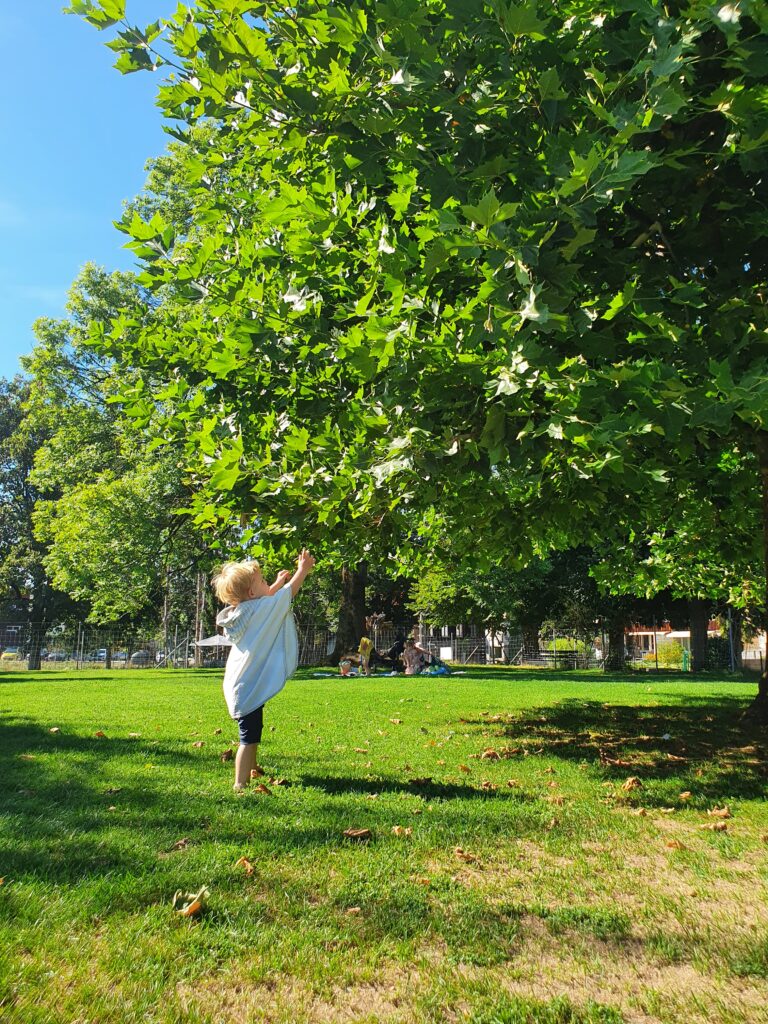There it was again. That increasingly familiar feeling. A thawing, at first tingling like pins and needles but then it evolved, verging on painful. This feeling reminded me of the days when my classmates and I would huddle around the radiators in the changing room after P.E desperately trying to warm our numb fingers after playing sport in the freezing Yorkshire winters. I’d felt this a few weeks earlier when my sister had come to stay for a few days.
Did she really just say that? I wondered.
“I mean it. I’d love to take your son out on a walk sometime”.
I hesitated. “But, he’s not your average three-year old”.
“That’s OK. I’d start by getting to know him and gradually earn his trust”.
Hot tears pricked in my eyes as I gazed up at my neighbour standing on her balcony above.
“I’d love that”. I finally managed to say. Those tears were threatening to escape.
My mind cast back to one of the few brief encounters I had with one of our previous neighbours. She usually cast her eyes to the ground as soon as she saw me, shuffled past and pretended I wasn’t there. This time I was slithering across the ice rink our communal carpark had become and I warned her: “Be careful! The carpark is full of black ice!” Her reply? “I’ve lived here for 10 years and I’ve never once slipped on the ice”. Yikes. I spent two years wondering what I’d ever done to her. Perhaps nothing. Perhaps she was just going through a bad time. Nevertheless, I felt my heart freeze a little that day.

Covid prevented other friendships with neighbours from getting off the starting blocks. That bloody C word, living miles and countries away from family members, moving to a rural village, becoming caregivers to our son, diminishing work and self-isolation from parents of typical children became the perfect recipe for something. Something beginning with L. Loneliness.
Lonelines can feel like a taboo word. Admitting you’re lonely can often be met with a well-meaning “have you tried…?” or “what about…?” While uttered with zero malice, these questions can leave you feeling less than.
“What’s wrong with me? Why do I feel this way?”
“Why am I struggling to make connections with others?”
“Why can’t I make friends?”
“Why am I finding it difficult to connect with those around me?”
“Why can’t I be satisfied with what I’ve got?”
As a caregiver it’s two-fold: either I am living up to the sad miserable stereotype of a caregiver by saying I’m lonely or I’m in danger of offending all those who love and care for me. It can even feel conflicting to feel lonely in a world where connecting with others is so easy, you don’t even need to leave the house. But, sometimes that’s not enough.
Sometimes humans feel lonely.
Even if they have a loving partner.
Even if they have wonderful friends.
Even if their families are supportive.
Even if they love their children unconditionally.
It’s a myth that we can only feel one emotion at a time. Loneliness can coexist with a range of other emotions. There is nothing wrong with you if you feel lonely. Lonely is not a dirty word. It’s what makes us human.
You don’t necessarily need to be alone to be lonely. In fact, you can feel lonely in a room full of people. There is a loneliness that no amount of Zoom calls, podcasts, Netflix or bubble baths can resolve.
So, what can?
Connection. Real human connection. And kindness.
That’s it. That’s the secret. That’s what caused the frozen walls around my heart to thaw. Not just my conversation with my neighbour but working face to face again, meeting new people, connecting with others both online and off, visits from family and date nights.
I’ve said to my husband countless times over the last few years “humans are not meant to live like this: isolated from one another. Humans need connection and support”. He agreed. We need so much more. Moving here feels like springtime. Like waking up after a long lonely slumber. Finally, I am beginning to claw back those connections. And it feels good.

